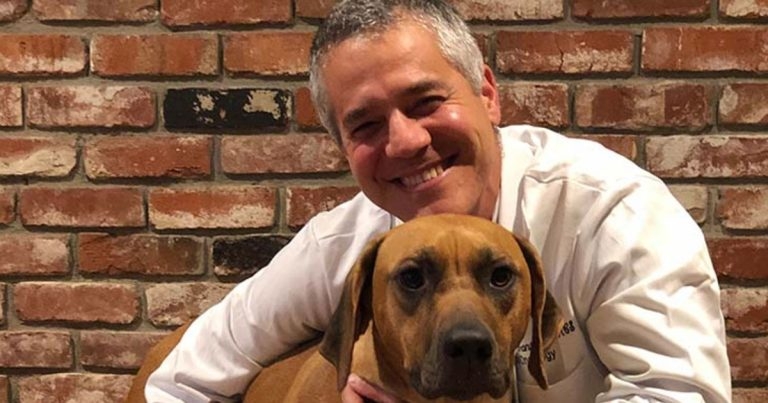17 Jun 2022
Study carried out by medical and veterinary researchers at UC Davis and other institutions use approach where naturally produced protein triggers T-cells and natural killer cells when inhaled.

UC Davis oncologist Robert Canter.
Scientists have discovered that a protein naturally produced by the body could be an important new immunotherapy drug against cancer.
Medical and veterinary oncologists at UC Davis and other institutions have carried out a study in 21 pet dogs of various breeds with metastatic lung disease from osteosarcoma and melanoma by treating them with inhaled interleukin-15 (IL-15).
It was the first clinical trial of its kind, and involved Robert Canter with UC Davis Comprehensive Cancer Center and canine oncologist Robert Rebhun with the UC Davis School of Veterinary Medicine.
Dr Canter said: “No one previously had administered IL-15 as an inhaled treatment in dogs to deliver it directly to the site of the cancer. We came up with that idea as a means of reducing exposure to the rest of the body to improve the benefit-risk ratio, improve the immune stimulating effects, and reduce toxicity.
“In this study, we used interleukin-15 to reinvigorate the immune system to make it recognise the cancer cells that had evaded the immune system and eliminate them.”
The study, published in the Journal for ImmunoTherapy of Cancer, showed amplified concentrations of IL-15 stimulate immune response defences against some cancers in dogs.
Dr Canter added: “As part of our comparative oncology research, we are strong advocates of clinical trials in companion dogs – especially for immunotherapy – as a way to speed bench-to-bedside translation.
“The cancers that afflict dogs, including sarcomas, brain tumours, lymphoma and melanoma, are incredibly similar to cancers that humans develop.”